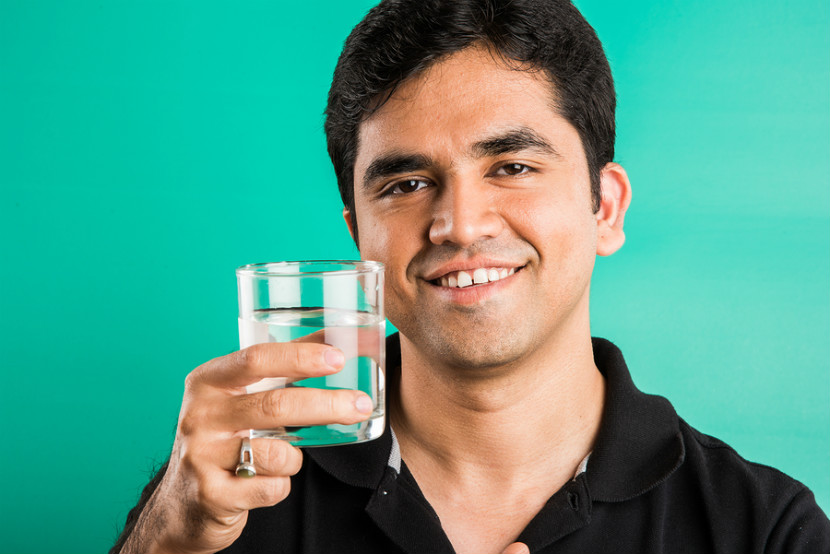
Are you at risk for kidney stones? Read on to learn more about the causes of kidney stones and how to prevent them.
What are kidneys?
The kidneys are the organs in your body that filter your blood and produce urine.
What are kidney stones?
Kidney stones are small, hard pieces of material that form in the kidneys. There are four main types of kidney stones:
-
Calcium stones (calcium oxalate and calcium phosphate stones). These are most common.
-
Uric acid stones
-
Cystine stones
-
Struvite stones
What are the symptoms of kidney stones?
Many people with kidney stones will not have any symptoms. Small stones may pass through the body without causing any pain. Large stones may block the flow of urine and cause extreme pain in your lower back or side. Symptoms often appear once the stone starts making its way to the bladder from the kidney. Symptoms can include pain when trying to urinate, urgent need to urinate, urinating more often than usual, blood in the urine, cloudy or smelly urine, nausea, vomiting, fever and chills.
Am I at risk of getting kidney stones?
You may be at increased risk if you:
-
Have had kidney stones in the past
-
Have a family history of kidney stones
-
Are male
-
Do not get enough fluid and are regularly dehydrated
-
Eat too much protein, sodium and sugar
-
Are obese
-
Have a digestive disease such as Inflammatory Bowel Disease (IBD)
-
Have had surgery such as gastric bypass surgery
How can I prevent kidney stones?
If you have never had kidney stones, you can help prevent them by drinking at least 2.5 L (10 cups) of fluid per day, especially water. In addition, the following general guidelines may also help prevent kidney stones.
-
Maintain a healthy weight.
-
Meet your calcium needs from food. If you take calcium supplements, don’t take more than 2000mg per day.
-
Have a maximum of 2-3 servings of meat and alternatives per day. Try plant-based source of protein more often, such as beans, lentils and soy. Learn about serving sizes for meat and alternatives.
-
Limit sugar-sweetened beverages like pop.
How can I prevent kidney stones from happening again?
Speak with your health care provider if you have had kidney stones in the past to learn what kind of stones you had. Below are tips to help prevent specific stones from occurring again. Don’t forget to also use the prevention tips above.
Preventing calcium stones:
-
Limit high sodium foods such as deli meats, pizza, sauces, soups and salty snacks. Packaged, ready-to-eat and restaurant meals are often high in sodium too.
-
Eat enough vegetables and fruit.
-
Limit caffeine to less than 400mg per day (less than 2-3 cups of brewed coffee per day).
-
Limit alcohol intake to less than the low risk drinking guidelines, which is no more than 15 drinks per week for men and 10 drinks per week for women.
-
Don’t take more than 1000mg of vitamin C supplements per day.
Tip for calcium oxalate stones only
-
Eat high oxalate foods in moderation such as spinach, okra, beets, Swiss chard, star fruit, rhubarb, dried figs, peanuts, pecan, almonds, hazelnuts, soybeans, tofu, black tea, wheat bran, buckwheat and dark chocolate.
-
If you eat a high-oxalate food, have a calcium-rich food or beverage, such as milk, fortified soy beverage, yogurt or cheese at the same time. Calcium binds oxalates so that they are not absorbed into your urine.
Preventing uric acid stones:
Follow the general guidelines on preventing prevent kidney stones above.
Preventing cystine stones:
Aim to drink 4 L (16 cups) of fluid each day. Check with your health care provider to ensure this high fluid intake is safe for you.
Preventing struvite stones:
These stones are usually caused by a kidney infection, which should be treated by your health care provider.
How are kidney stones treated?
Treatment options for kidney stones depend on the type and size. Small stones often pass without treatment or with pain medication. Larger stones can be broken down using various methods done by a urologist or may require surgery.
When should I see my health care provider?
It’s important to speak with your health care provider if you are experiencing any of the following symptoms:
-
Severe pain
-
Pain with nausea, vomiting, fever and/or chills
-
Blood in your urine
-
Trouble urinating
Bottom line
Drinking enough fluid and maintaining a healthy weight are two important ways that can help prevent kidney stones. If you have had kidney stones, it’s important to know which type so you can prevent future stones from occurring. If you are concerned or experience pain, speak with your health care provider.
Last Update – February 26, 2019